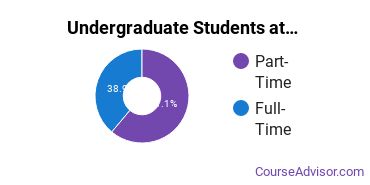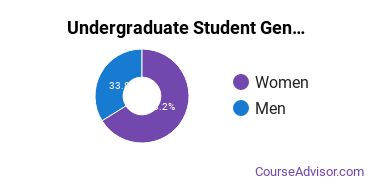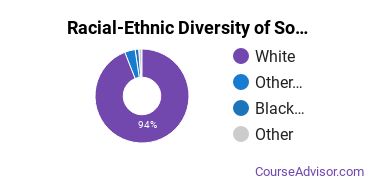Southeast Kentucky Community and Technical College Overview
Southeast Kentucky Community and Technical College is a public institution located in Cumberland, Kentucky. The rural area surrounding the school is great for students who prefer living in a country setting.
What Is Southeast Kentucky Community and Technical College Known For?
- The highest award offered at Southeast is the undergraduate certificate.
- During a recent academic cycle, 99% of the faculty were full-time.
Where Is Southeast Kentucky Community and Technical College?

Contact details for Southeast are given below.
| Contact Details | |
|---|---|
| Address: | 700 College Rd, Cumberland, KY 40823 |
| Phone: | 606-589-2145 |
| Website: | southeast.kctcs.edu |
How Do I Get Into Southeast?
You can apply to Southeast online at: https://students.kctcs.edu/psc/stdsaprd/EMPLOYEE/SA/c/COMMUNITY_ACCESS.K_OLA_LANDING_FL.GBL?&Campus=SEC
Can I Afford Southeast Kentucky Community and Technical College?
Student Loan Debt
Almost 66% of college students who graduated with the class of 2018 took out student loans, but that percentage varies from school to school. At Southeast, approximately 5% of students took out student loans averaging $3,959 a year. That adds up to $15,836 over four years for those students.
Explore Best Ranked Schools for You
Southeast Kentucky Community and Technical College Undergraduate Student Diversity

Gender Diversity
Of the 1,004 full-time undergraduates at Southeast, 36% are male and 64% are female.

Racial-Ethnic Diversity
The racial-ethnic breakdown of Southeast Kentucky Community and Technical College students is as follows.

| Race/Ethnicity | Number of Grads |
|---|---|
| Asian | 4 |
| Black or African American | 13 |
| Hispanic or Latino | 6 |
| White | 947 |
| International Students | 0 |
| Other Races/Ethnicities | 34 |
Southeast Kentucky Community and Technical College Undergraduate Concentrations
The table below shows the number of awards for each concentration.
References
*The racial-ethnic minorities count is calculated by taking the total number of students and subtracting white students, international students, and students whose race/ethnicity was unknown. This number is then divided by the total number of students at the school to obtain the racial-ethnic minorities percentage.
More about our data sources and methodologies.
